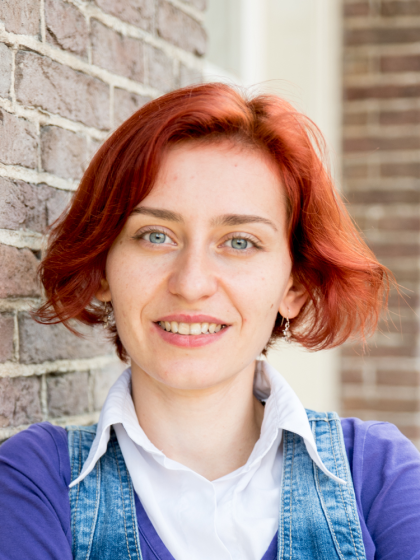The AI Workshop is a half-day event dedicated to presenting current research and emerging directions in the field of Artificial Intelligence. Held at the University of Stuttgart, the workshop brings together international experts, local researchers, and students for an engaging afternoon of talks and discussions.
The goal of the workshop is to foster interdisciplinary exchange and to promote a deeper understanding of AI methods, challenges, and applications. Topics covered will include automated planning, machine learning, intelligent systems, and the deployment of AI technologies in complex environments.
The event will feature two invited talks by distinguished researchers, followed by an inaugural lecture to a Privatdozent. The program concludes with an informal reception.
The workshop is kindly supported by the ELLIS Unit Stuttgart, which helps promote excellence in AI research and collaboration across Europe.
Schedule
Date: Wednesday, June 25, 2025
Location: Room V38.03
| 13:00-13:05 | Welcome |
| 13:05-14:00 | Invited Talk by Hector Geffner |
| 14:05-15:00 | Invited Talk by Victoria Degeler |
| 15:05-16:00 | Inaugural Lecture by Ilche Georgievski |
| 16:00-17:00 | Informal Reception |
Everybody is welcome to join the talks, and all attendees are welcome to join the reception with some food and drinks. No registration is necessary.
Speakers
Hector Geffner
 Hector Geffner is an Alexander von Humboldt Professor at the RWTH Aachen University, Germany. Before joining RWTH in 2023, he was an ICREA Research Professor at the Universitat Pompeu Fabra in Barcelona, Spain. Hector obtained a Ph.D. in Computer Science at UCLA and worked at the IBM T.J. Watson Research Center in New York and at the Universidad Simon Bolivar in Caracas. Distinctions for his work include the 1990 ACM Dissertation Award and three ICAPS Influential Paper Awards. He currently leads a project on representation learning for acting and planning (RLeap) funded by an ERC grant.
Hector Geffner is an Alexander von Humboldt Professor at the RWTH Aachen University, Germany. Before joining RWTH in 2023, he was an ICREA Research Professor at the Universitat Pompeu Fabra in Barcelona, Spain. Hector obtained a Ph.D. in Computer Science at UCLA and worked at the IBM T.J. Watson Research Center in New York and at the Universidad Simon Bolivar in Caracas. Distinctions for his work include the 1990 ACM Dissertation Award and three ICAPS Influential Paper Awards. He currently leads a project on representation learning for acting and planning (RLeap) funded by an ERC grant.
Representation learning to act and plan
Recent progress in deep reinforcement learning (DRL) has been truly remarkable yet two key problems remain: structural policy generalization and policy reuse. The first is about getting policies that generalize in a reliable way; the second is about getting policies that can be reused and combined in a flexible, goal-oriented manner. The two problems are studied in DRL but mostly experimentally, and the results are not always crisp and clear. In our work, we have tackled these problems in a slightly different way, separating what is to be learned from how. For this, we have developed languages for expressing, studying, and learning general policies, using combinatorial and DRL approaches. We have also developed languages and methods for learning lifted world models, general subgoal structures, and hierarchical policies. Open challenges and general methodological lessons will be discussed too. Joint work with the RLeap team.
Victoria Degeler
 Dr. Victoria Degeler is an Assistant Professor at Intelligent Data Engineering and Complex Cyber Infrastructures groups of the University of Amsterdam. Her research interests are focused on reasoning and decision making systems for smart environments, digital twins, pervasive systems and context modeling and representation, state estimation and activity recognition, with particular interest in sustainable applications such as energy and water management. Her prior career, always at the edge of both academia and industry, included positions at the University of Groningen, Airbus, NUI Galway, TU Delft and Cupenya, a startup where she led the AI and Data Science department. She mentors startups and produced workshops for promoting digitalisation in the industry. She is a patent holder and produced a number of peer-reviewed journal and conference publications, including receiving the best demonstration and the best student paper awards. She is a recipient of several large-scale research grants, and currently leads a large multi-party public-private partnership consortium on the NWO DiTEC (Digital Twins for Evolutionary Changes in Water Networks) project, and has been involved in the leadership of several other EU and national research projects in the past. She is involved in coordinating the Master of Computer Science degree in the University of Amsterdam.
Dr. Victoria Degeler is an Assistant Professor at Intelligent Data Engineering and Complex Cyber Infrastructures groups of the University of Amsterdam. Her research interests are focused on reasoning and decision making systems for smart environments, digital twins, pervasive systems and context modeling and representation, state estimation and activity recognition, with particular interest in sustainable applications such as energy and water management. Her prior career, always at the edge of both academia and industry, included positions at the University of Groningen, Airbus, NUI Galway, TU Delft and Cupenya, a startup where she led the AI and Data Science department. She mentors startups and produced workshops for promoting digitalisation in the industry. She is a patent holder and produced a number of peer-reviewed journal and conference publications, including receiving the best demonstration and the best student paper awards. She is a recipient of several large-scale research grants, and currently leads a large multi-party public-private partnership consortium on the NWO DiTEC (Digital Twins for Evolutionary Changes in Water Networks) project, and has been involved in the leadership of several other EU and national research projects in the past. She is involved in coordinating the Master of Computer Science degree in the University of Amsterdam.
Graphs for State Recognition and Reasoning in Smart Environments
Digital representations of physical environments, such as digital twins, face numerous challenges, including the complexity of representation due their inherent multi-layered logical structure; heterogeneity of concepts to be represented; partial observability of environmental events; and concept and data drift that decreases the performance of learned models over time. Graphs, being extremely versatile data structures, naturally capture many of the relations in physical environments. They are suitable for effectively reflecting spatio-temporal characteristics, semantic connections, while providing powerful foundations for diverse deep learning methods. In this talk, we will introduce a framework that combines several novel graph-based techniques to address challenges faced by smart environments and cyber-physical systems, including graph neural network-based state estimation, pattern dependency graphs, semantic rule learning based on knowledge graphs, and graph representations for contrastive learning in activity recognition. These approaches aim to ensure that the states and activities in the environment are adequately detected and clearly explained, while maintaining the fidelity of the representation over time.
Ilche Georgievski
Ilche Georgievski is a senior researcher and lecturer at the University of Stuttgart, Germany. He holds a Ph.D. in Computer Science from the University of Groningen, the Netherlands, and a Master’s degree in Computer and Information Science from the University of Maribor, Slovenia. He completed his habilitation in Computer Science at the University of Stuttgart in 2025. His academic background includes postdoctoral work at the Universities of Groningen and Stuttgart, as well as a visiting research stay at Carnegie Mellon University. Between 2017 and 2018, he served as the Chief Technology Officer at Sustainable Buildings. He actively mentors students, some of whose work has been recognised with best paper awards. Ilche's research interests include AI planning, composite AI, automated service composition, and real-world applications.
No Plan Survives Deployment: From Symbolic Roots to Systems Engineering in AI Planning
Planning is a fundamental aspect of human intelligence. It allows us to anticipate the future, make decisions, and coordinate actions. In AI, the concept of planning has a long history, and its contributions have become central to many applications, from robotics to smart buildings and beyond. In this lecture, I will reflect on the evolution of AI planning and highlight key ideas that have shaped the field. I will also explore why, despite its promise, AI planning continues to face challenges in bridging theory and practice. Finally, I will present some current developments and share insights from my work on engineering AI planning systems, focusing on composability, sustainability, and their ability to address real-world problems.
Location
Organizers
- Ilche Georgievski, IAAS Service Computing, University of Stuttgart
- Katrin Fauß, ELLIS Unit Stuttgart

